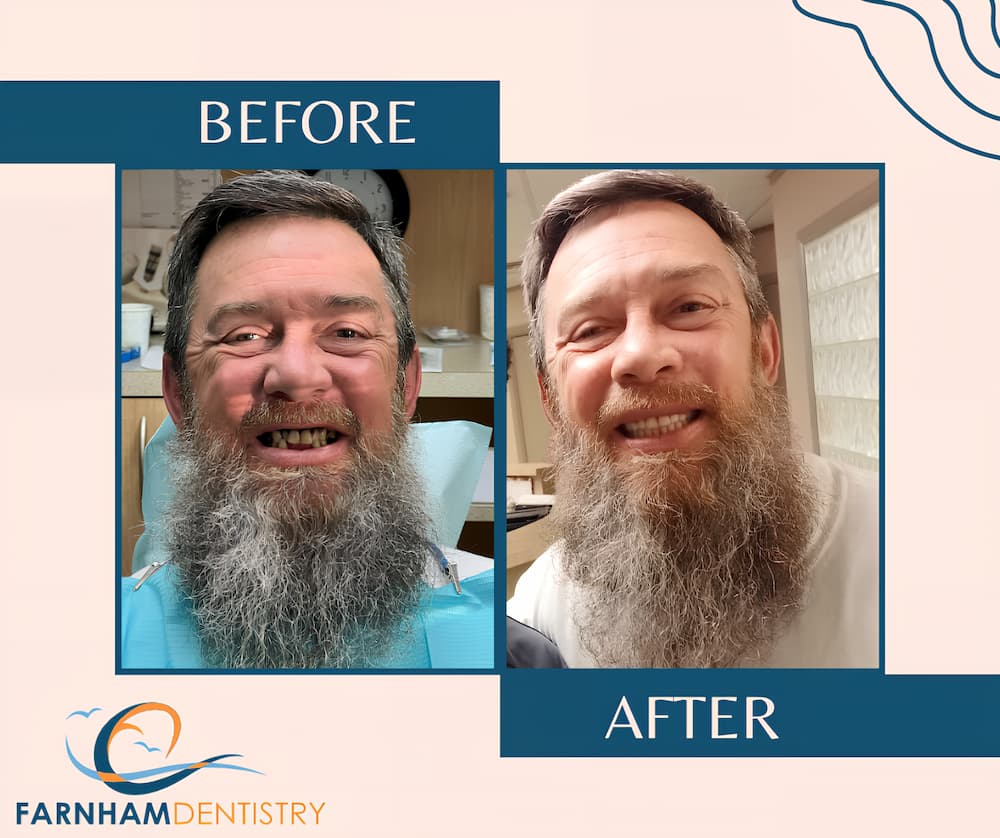
5 Reasons Why You Should Replace Missing Teeth
According to the American Dental Association, approximately 120 million Americans are missing at least one tooth, and 36 million are edentulous.
One of the major contributors to bone loss and oral health complications is not replacing missing teeth. If teeth are missing from the upper and lower arch, they will shift, causing an uneven bite, which can lead to a variety of problems.
By restoring a missing tooth, you can prevent the adjacent teeth from shifting into the gap left by the missing tooth. Your ability to bite and chew certain foods, as well as how you speak, can be negatively affected by missing teeth.
Replacing missing teeth can help you maintain your teeth’s functions. You can improve the appearance of your smile, prevent serious dental problems in the future, preserve oral function, and even prevent bone loss by replacing missing teeth.
1. Restore Your Self-Confidence
Your smile is one of the first things people notice about you. When you have missing teeth, it can be difficult to smile with confidence. Dental implants can give you back your smile and help you feel more confident in social and professional situations.
Your smile is one of your best assets. When you have missing teeth, it can be difficult to smile with confidence. Dental implants can give you back your smile and help you feel more confident in social and professional situations.
2. Prevent Opposing Teeth From Over-Erupting
If you don’t replace a missing tooth, the teeth surrounding the empty space will eventually start to shift. The teeth on either side of the gap can begin to tilt or drift into the empty space. As the teeth surrounding the gap shift, they can start to put pressure on the teeth in the opposite jaw. This can cause the teeth in the opposite jaw to erupt, or grow longer.
The over-eruption of teeth can cause a number of problems. First, it can affect your bite, as your teeth will no longer line up correctly. Second, it can cause your teeth to become more susceptible to cavities and decay, as they are more likely to come into contact with food and bacteria. Third, it can cause your gums to become irritated and inflamed, as they are constantly being rubbed by the over-erupting teeth. And finally, it can lead to gum disease, as the inflammation and irritation make it easier for bacteria to grow and thrive.
Wearing down of teeth is another problem that can be caused by over-erupting teeth. When your teeth are not properly aligned, they can rub against each other and wear down over time. This can cause your teeth to become weaker and more susceptible to breakage and decay. Wearing down of teeth can also affect your bite, as your teeth will no longer fit together correctly.
3. Avoid Shifting Teeth
A missing tooth can cause the surrounding teeth to shift, which can lead to a number of problems, including an uneven bite and difficulty speaking and chewing. When a tooth is missing, the adjacent teeth will begin to shift into the empty space. This can cause your bite to become misaligned, which can lead to difficulty speaking and chewing. In addition, the shifting of your teeth can cause your smile to become crooked. Replacing a missing tooth with an implant can help prevent the adjacent teeth from shifting out of place.
Teeth shifting is one of the main problems caused by missing teeth. When a tooth is missing, the adjacent teeth will begin to shift into the empty space. This can cause your bite to become misaligned, which can lead to difficulty speaking and chewing. In addition, the shifting of your teeth can cause your smile to become crooked. Replacing a missing tooth with an implant can help prevent the adjacent teeth from shifting out of place.
Crooked teeth are another common problem caused by missing teeth. When teeth are missing, the adjacent teeth will begin to shift into the empty space. This can cause your smile to become crooked. In addition, crooked teeth can be difficult to clean properly, which can lead to an increased risk of cavities and gum disease. Replacing a missing tooth with an implant can help prevent the adjacent teeth from shifting out of place and help you maintain a straight smile.
4. Prevent Bone Loss
Tooth loss leads to bone loss in the jaw. When teeth are missing, the bone around the teeth begins to deteriorate. This is because the bone is no longer being used to support the teeth. Dental implants are the only restoration methods that prevent bone loss. Implants are placed in the jawbone and act as artificial roots. They provide support for replacement teeth, just like natural roots. The implants fuse to the jawbone and provide a strong foundation for replacement teeth.
Tooth loss leads to bone loss in the jaw. When teeth are missing, the bone around the teeth begins to deteriorate. This is because the bone is no longer being used to support the teeth. Dental implants are the only restoration methods that prevent bone loss. Implants are placed in the jawbone and act as artificial roots. They provide support for replacement teeth, just like natural roots. The implants fuse to the jawbone and provide a strong foundation for replacement teeth.
Dental implants are the only restoration methods that prevent bone loss. Implants are placed in the jawbone and act as artificial roots. They provide support for replacement teeth, just like natural roots. The implants fuse to the jawbone and provide a strong foundation for replacement teeth.
5. Reduce Risk Of Gum Disease
The spaces left by missing teeth can harbor bacteria and plaque, which can lead to gum disease. When you lose a tooth, the surrounding teeth can tilt or shift into the empty space. This can cause gaps to form between your teeth, making it difficult to clean them properly. If these spaces are not cleaned properly, bacteria and plaque can build up, leading to gum disease.
When gum disease occurs, your teeth can become loose and eventually fall out, as the gum tissue and bone supporting them are destroyed. The cause of gum disease is plaque, a gummy accumulation of bacteria that develops on the teeth. Plaque is continuously building up on the surface of your teeth, and if not regularly removed, it will harden into calculus (tartar).
In order to get rid of calculus, you will need a professional cleaning service. If plaque and calculus are not brushed away, they will cause gingivitis, a mild form of gum disease that causes redness, swelling, and bleeding in the gums. Gingivitis can eventually lead to periodontitis if left untreated.
A more severe version of gum disease, periodontitis causes gums to pull away from teeth, forming pockets. These pockets accumulate bacteria and plaque that can weaken the bone and connective tissue supporting your teeth if left untreated. If left untreated, periodontitis can cause tooth loss.
Best Dental Options For Replacing Missing Teeth
Dental implants are the best long-term, most predictable option for replacing any missing teeth. A dental implant is a titanium screw that incorporates into the bone and acts as the root of the tooth. Dr. Farnham is a highly skilled and experienced implant dentist.
Dentures are another option for replacing missing teeth. Dentures are removable appliances that can be taken out and put back in by the patient. They are typically made of acrylic or porcelain, and they replace all of the teeth in the upper or lower arch. Dentures can be used to replace all of the teeth in the mouth, or they can be used to replace just a few missing teeth.
Bridges are another option for replacing missing teeth. Bridges are made of two crowns that are placed on the teeth adjacent to the missing tooth, and they are connected by a false tooth in the middle. Bridges are typically made of porcelain or ceramic, and they can be used to replace one or more missing teeth.
Bottom Line
While dental implants are typically the best option for replacing missing teeth, we understand that not everyone is a candidate or has the budget for them.
That’s why at Farnham Dentistry, we take the time to understand your current situation and find the best possible resolution for replacing your missing teeth.
If you have any questions about which method is best for you, please call our office and we would be more than happy to help you figure out the best solution for your smile.
